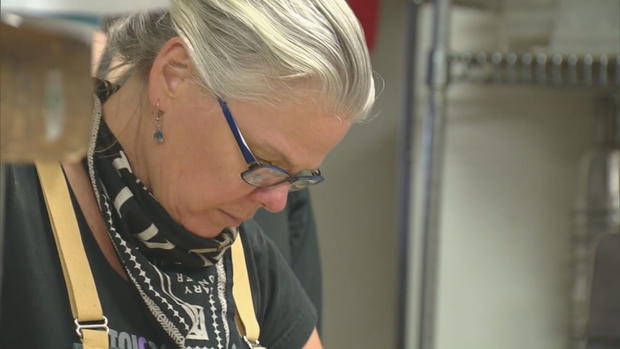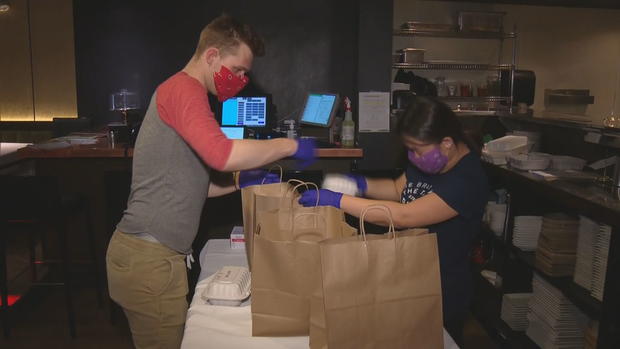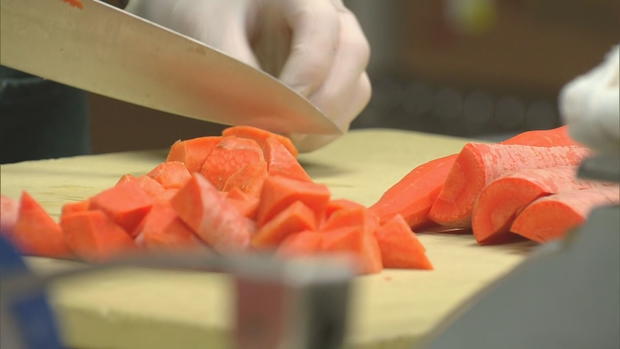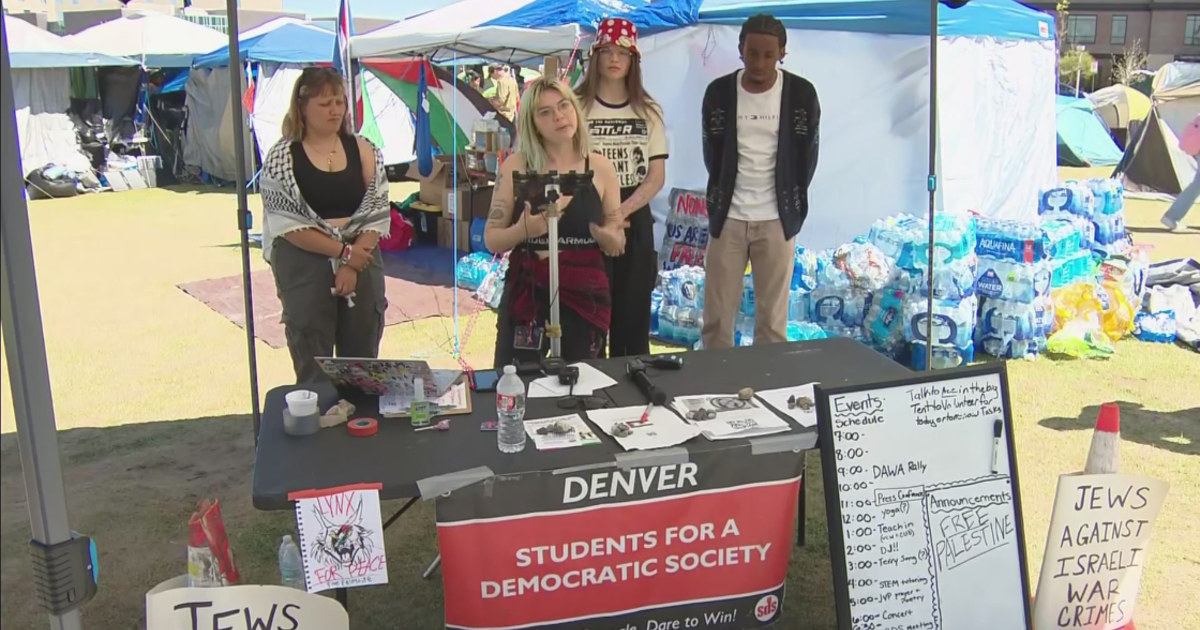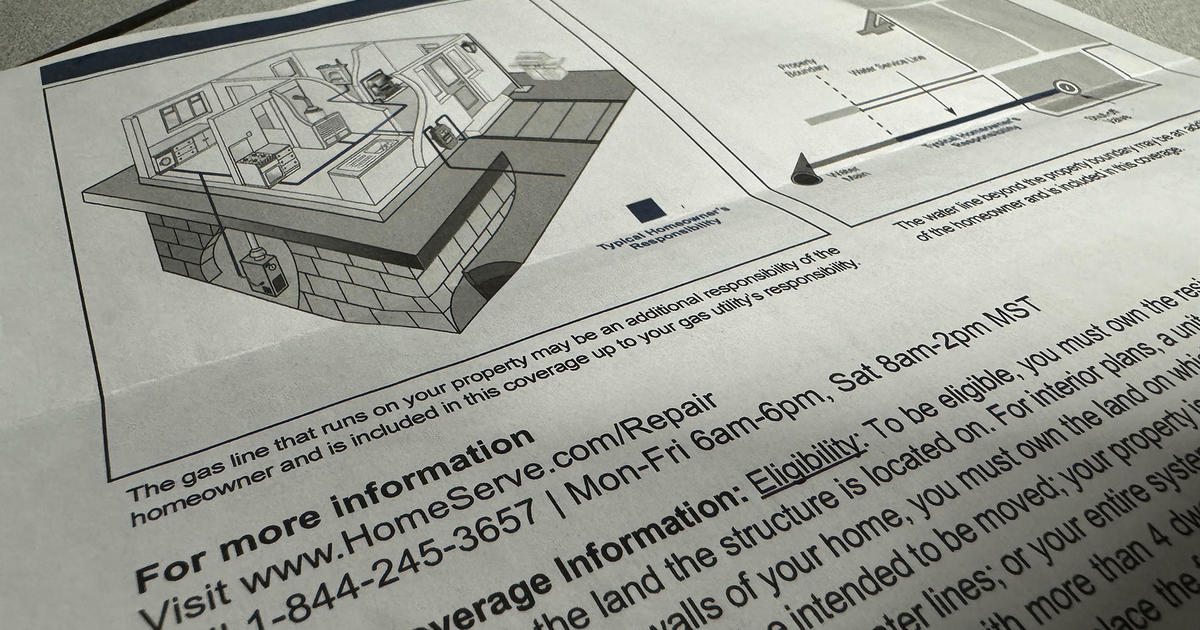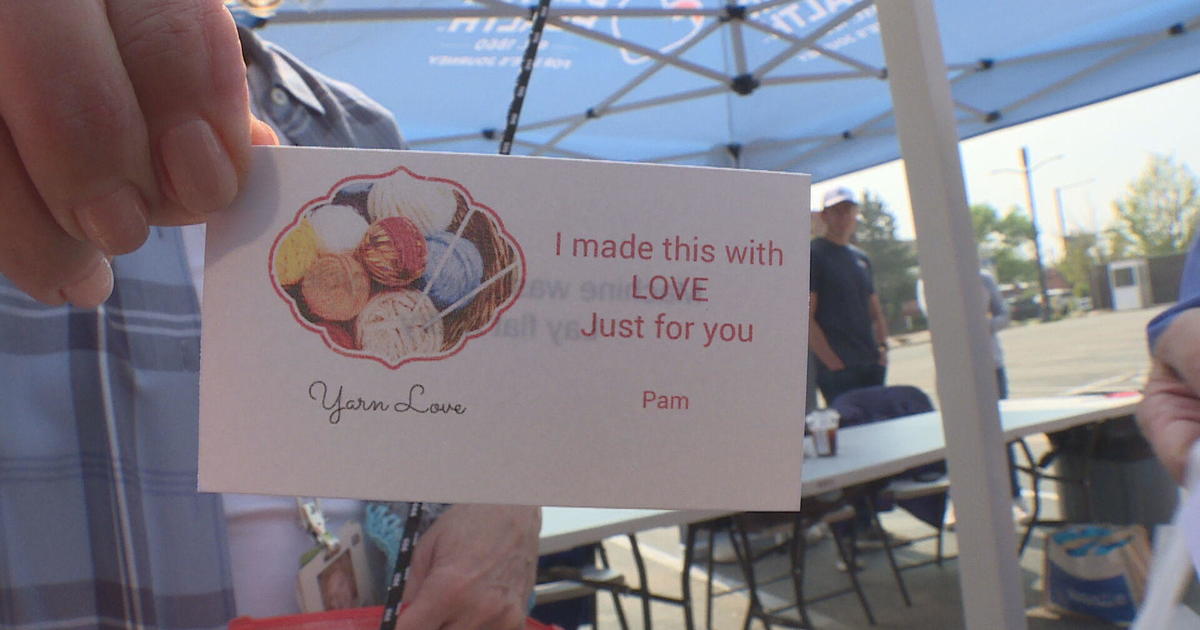Denver Chef Jennifer Jasinski Unsure How Gradual Reopening Of Restaurants Will Work
DENVER (CBS4) - Colorado's stay-at-home order is set to be lifted April 26, but this week Gov. Jared Polis said during a news conference about the coronavirus outbreak that when bars and restaurants reopen, it will be gradual. Denver chef Jennifer Jasinski owns four downtown restaurants -- Rioja, Bistro Vendome, Ultreia and Stoic & Genuine.
"I don't know how that's going to work. So, are we going to have to seat every other table? 50%? There's so many questions up in the air, and we want to bring our staff back on, but obviously, if we're at 40% of capacity, 50% capacity and only a certain amount of people want to come back, that equation you know doesn't work," said Jasinski.
Her fifth restaurant, Euclid Hall, closed its doors in March. After 10 years in business, COVID-19 was one financial storm it couldn't weather.
"We saw the bank accounts going down, and it was really important for us to be able to close the doors at Euclid and pay our employees everything that was owed to them and pay our vendors everything that was owed to them," she said.
CBS4 met "Chef Jen" Wednesday where despite the downturn, she was busier than ever.
"So we're doing takeaway and delivery food to go out of kitchen here at Rioja. We've started a group to help feed 500 meals a day out of this restaurant in our community for people in need."
The group, Colorado Restaurant Response, distributes food to the Denver Emergency Food Network. CBS4's Jamie Leary asked her, with the strain she's under, why add 500 free meals on top of it?
"I don't know. Sometimes I don't know what else to do and I want to help people, and I think there's still people in need and I know how to cook so..."
She enjoys serving the community, but worries with a gradual reopening, it will be hard for her restaurants to recover.
The Colorado Restaurant Association recently released findings from a survey which shows between March 1 and March 22, 2% of Colorado restaurant owners permanently closed their businesses and over the next 30 days, 14% anticipate doing the same.
Other findings by the CRA:
Estimated Losses
- In Colorado, the restaurant industry lost an estimated $465 million in sales and more than 150,000 jobs -- either via layoffs or furlough, with no foreseeable income coming from their job in the next few months -- during the first 22 days of March.
Survey Results
- Ninety-two percent of Colorado restaurant operators say their total dollar sales volume during the period from March 1 to March 22 was lower it was during the same period in 2019.
- Six percent of operators reported higher sales, while 2 percent of operators say their sales were about the same as they were during the same period in 2019.
- On average, restaurant operators reported a 51 percent decline in sales during the period from March 1 to March 22.
- Colorado restaurant operators took a number of actions during the first three weeks of March, in response to the COVID-19 outbreak:
- Seventy-six percent of restaurant operators laid off employees. Fifty-six percent anticipate doing more of this during the next 30 days.
- Seventy-four percent of operators cut employee hours.
- Sixty-four percent of operators reduced their hours of operation.
- Sixty percent of operators temporarily changed their business model to off-premises only.
- Forty-four percent of operators temporarily closed their restaurant.
- Two percent of operators permanently closed their restaurant, and 14 percent anticipate permanently closing their restaurant within the next 30 days.
Percent of Colorado restaurant operators who took or plan to take the following actions
| Action | Took this action between March 1 and March 22 | Anticipate taking this action during the next 30 days |
| Lay off employees | 81% | 56% |
| Reduce number of employee hours worked | 74% | 57% |
| Reduce hours of operation | 69% | 52% |
| Temporarily change business model to off-premises only | 66% | 41% |
| Temporarily close the restaurant | 44% | 59% |
| Permanently close the restaurant | 2% | 14% |
Source: National Restaurant Association, national survey of more than 4,500 restaurant operators conducted March 23-26 and Colorado Restaurant Association survey conducted over that same time period.
The CRA says the results were calculated prior to the introduction of the federal Paycheck Protection Act.
CRA spokeswomen Laura Shunk says while this program presents a stopgap, it's just enough to help the industry limp along for a few weeks longer. She says it will still need further relief from all levels of government to get to the other side of the crisis.
The federal assistance may not help Jasinski. It's payroll driven, and with a gradual re-opening, she still has expenses like rent and inventory. Not to mention, she will likely not be able to hire everyone back.
"It can be helpful to hire the staff back, but if the staff does the calculation that they're going to get more from us than they get from unemployment? They may choose not to come back," she continued, "and we lost thousands and thousands of dollars in food inventory, so one thing that Payroll Protection Act doesn't do is help us to pay accounts payable."
Jasinski believes this will change the face of the industry for a long time and believes in order to survive everyone will have to make sacrifices.
"One aspect can't take all the hit ... we all need to take I think a little bit of a hit and then maybe we can make it to the other side -- that's what I think needs to happen in a holistic approach."
RELATED: Latest Updates On The Coronavirus Outbreak In Colorado
